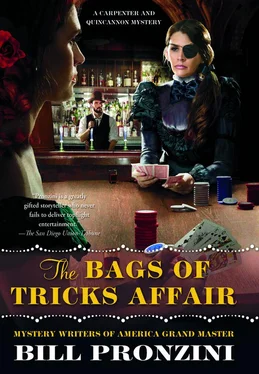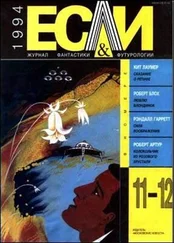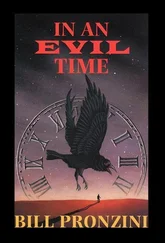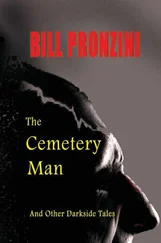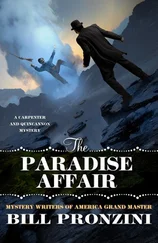That was a barefaced lie. Although Nickerson had no discernible Southern accent, neither did he possess the distinctive pronunciation and inflection of a native Californian. Quincannon continued to stare at him, even more fiercely now.
The land agent blinked several times, finally shifted his gaze. He cleared his throat again and said, “I don’t wish to be rude, Mr. Quincannon, but I am rather busy and I would appreciate it if you, mmm, proceeded with your inquiries elsewhere.”
“No.”
“... I beg your pardon? I don’t—”
“I said no. I’ll continue my inquiries right here.”
“But there is nothing more I can tell you, sir. Not a blessed thing.”
Quincannon had run out of patience. He’d dealt with enough nervous, frightened, culpable liars during the course of his career to recognize when he was in the company of another of the breed. D. S. Nickerson of New Orleans and Donald S. Nickerson of San Francisco were one and the same man, and no mistake.
“The devil there isn’t,” he snapped. “You can and you will tell me all you know about Jeffrey Gaunt, past and present. You’ve seen him recently, haven’t you?”
“No! No, I—”
Quincannon advanced on him. Nickerson flinched and backpedaled, but he didn’t get far. Quincannon’s left hand caught the front of the land agent’s coat and shirt and yanked him to a halt. His right filled with his Navy Colt; he thumbed it to cock, and thrust the barrel along Nickerson’s upper lip and tight against his left nostril.
“Now talk,” he said in a voice like the crack of a whip. “Where is the son of a bitch?”
The trough had been fashioned of six-foot metal sections welded together, their flanged edges nailed to the floorboards on each side to hold them in place. Some of the rusted nails had worked or broken loose from the rotting wood; Sabina discovered this when she knelt and felt carefully along the edges. The flange on one section had popped up by half an inch or so from the warped board it was attached to. The protrusion was what she had stubbed the toe of her shoe on.
That section was loose on both sides; it rattled and gave slightly when she slid her fingers under the flange and tugged upward. But she couldn’t get enough purchase to lift the flange up any higher, and the sharp metal cut painfully into her finger pads.
There was a restrained excitement inside her now, a sense of purpose at last. Find something to pry up the flanges, something thin and strong enough to act as a fulcrum. The scattered pieces of lumber... would any of them do? No, they were all too thick.
She went again to the rowboat skeleton. The first thing she did was to send the rowboat crashing to the floor by kicking the fractured leg of the sawhorse holding up its lower end. As she’d hoped, some of the gray bones cracked loose. She felt them until she came upon one that had a split in it. The smaller, splintered piece felt as though it might be what she needed... if she could break it free.
Perspiring in the cold dampness, she worked in vain with her fingers and the pipe. Then she thought to try slipping the hollow pipe over the splinter’s thin, sharp end. The aperture was just large enough to swallow a couple of inches of wood.
She struggled to get the splinter deeper into the pipe, to gain enough purchase to jerk it up and down, from side to side. Finally it cracked and broke off. She separated it from the pipe, felt along its length. The piece was some eighteen inches long, the broken end less than half an inch thick. Not too thick to wedge under the lip of the flange, she prayed.
It just fit. She wiggled it in as far as it would go, then reinserted the sharp end into the pipe. Now she had an effective pry bar, or she did if the wormy old wood didn’t disintegrate from the pressure.
She tore two strips from the hem of her tattered dress, wrapped them around her sore hands, and began laboring. Her strength soon flagged from the exertion; she forced herself to take her time, to rest at intervals. Countless minutes passed before her efforts were rewarded by the screech of another nail pulling free. When it did, the metal rose enough for her to slide the wood farther underneath, thus easing the strain.
A third nail popped out, then a fourth on the opposite side. The section felt wobbly now. Sabina withdrew the wood, took hold of the flange with both hands and jerked upward as hard as she could. The fifth or sixth time she did that, there was another rending metal sound as one or more of the welds fastening this section to the others snapped.
She heaved and twisted frenziedly, raising puffs of the dust and powdery rat droppings that had collected in the hollow. More welds broke apart, another nail came out, and all at once the section parted on both ends, the flange on the opposite side pulled up out of the floorboard. She held the section in one bloodied hand, staggered upright, braced herself, and took a two-handed grip. It took only one more twist to free it completely. She thrust the length of metal from her, sent it clattering to one side.
On her knees again, she peered into the six-foot opening in the floor. She could make out the murky water below, smell its briny odor, feel the chill of the lapping wavelets. How far down? Six feet, eight, more? She couldn’t tell. But no matter how far it was, the water couldn’t be very deep, not with this part of the building canted downward on pilings.
But could she get out through the gap?
She leaned across it, measuring. As she’d estimated before, it was some eight inches wide, not wide enough even for a woman of her slender frame to squeeze through. The space had to be enlarged a few more inches on one side or the other. She felt the near edge of the floorboard. The wood was wet, rotted, or else she would not have been able to pry up the flange.
More work with the pipe. Chip away at the rotted wood, keep chipping away for as long as it took to widen the opening. It could be done. Freedom, her one and only hope... it had to be done.
She set to the task.
Bits and pieces of wood flaked off at an agonizingly slow pace. After a while all awareness of time ceased. Her mind was a blank; only dimly did she feel the pain in her cramped joints, her lacerated hands. She became a machine, a human piston, constantly beating away at the one small obstacle between her and escape.
Fatigue and muscle cramps took their toll eventually, forcing another period of rest. She sat back, flexing her hands, her legs. For a moment, then, she closed her eyes. Just for a moment... except that exhaustion turned it into minutes, how many she never knew.
The sudden shrill scream of a gull swooping low above the hole in the roof snapped her back to awareness. Her mind, her movements were sluggish at first; she shook herself, mentally as well as physically, until she was able to focus again.
She pushed back onto her knees, felt along the ragged edge of the floorboard. She’d made progress; almost half of it had been chopped through. But not enough yet to attempt to eel her body through the trough opening. The gap had to be widened even more. Lengthened, too.
The fabric around her hands was slick with blood. She peeled off the sodden strips, tore two more from the hem of her dress and rebound her hands. Then she took up the pipe and resumed her labors.
As before, she lost all perception of the passage of time. Gouge with the pipe, rest briefly, measure her progress; gouge with the pipe, rest, measure; gouge, rest, measure...
Much of the board was gone now, the floor opening at least ten inches wide. Enough? Not dressed as she was, in the filthy cape and the remains of her evening gown. She struggled out of the clothing, heaped it to one side. Clad only in her shoes and combination undergarment of silk camisole and drawers, she eased herself into a sitting position with her legs thrust through the opening, then pushed forward into it with her elbows braced on either side.
Читать дальше
